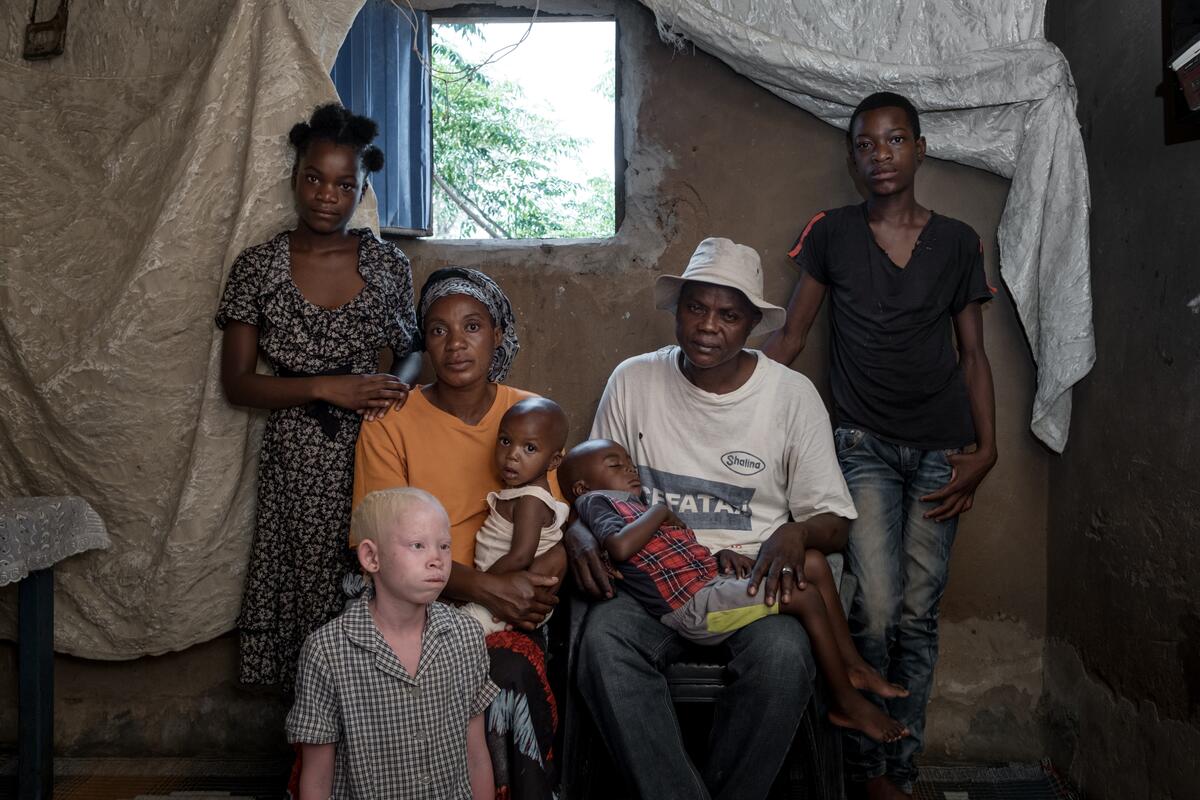Women in Sierra Leone get grain without pain
Women in Sierra Leone get grain without pain

KAMBIA, Sierra Leone, Dec 2 (UNHCR) - The women of Kawula village say they have traded in blisters for beauty and regained freshness where they were once out of breath, all thanks to machines provided by the UN refugee agency.
The machines in question are not cosmetic or sport gadgets. Instead, they are rice mills donated by UNHCR as part of community empowerment projects in north-western Sierra Leone's Kambia district, one of the major areas of return for Sierra Leonean refugees who fled the country during the decade-long civil war that ended in 2002.
The district's fertile swamps make it ideal for the cultivation of rice and other crops such as cassava and sweet potatoes. Some 90 percent of its population of 200,000 are farmers, and the importance of rice production here is underlined by the fact that Sierra Leone's only Rice Research Centre is located in the district's Rokupr town.
Despite producing rice on a large scale for generations, the people of Kambia district have never had a rice mill machine before. "In all my 46 years, I'd never set eyes on a rice mill here until recently," said Kadiatu Y. Bangura, who chairs the Kankana Women's Cooperative in Kawula village.
The pounding of rice and its preparation for consumption are traditionally regarded as a woman's job. According to Bangura, rice was pounded locally in mortars using pestles by groups of women who tried to ease their pain by singing songs about love, traditional beliefs, local customs, praises for the local chief or young couples scheduled to marry in the coming harvesting season.
"But our pain never disappeared," said Bangura. "We only managed to endure together. We often sustained blisters on our palms and lost our breath as we used all our energy to pound, especially if we had big ceremonies that required a lot of cooking."
Marie Turay, the cooperative's treasurer, said husk rice used to be transported to Port Loko town about 68 km from Kambia for milling in large quantities. This already difficult situation was further exacerbated by the civil war that destroyed the rice mills in the entire region.
Thus, the recent introduction of rice mill machines to Kambia has brought a new impetus to the war-impoverished communities. Four rice mills donated by UNHCR to four village communities have replaced the enormous labour provided by women to pound hundreds of bushels of husk rice for local consumption as well as for sale in the local market.
Communities that did not benefit from the rice mill project have been appealing to UNHCR to extend it to their chiefdoms. In response, the agency has brought in seven additional rice mills that are currently being installed in different farm communities.
"The introduction of the rice mill means everything to us. The women of Kawula no longer use mortars to pound rice, and neither do all the women in the surrounding villages," said Bangura.
"We now spend less time in the kitchen because we save time on pounding," added Turay.
Memunatu Koroma, a village elder, smiled: "We women grew older while the men stayed young, because of the continuous labour used in pounding. Now we look beautiful and fresh because the machine does the work instead."
The men are happy too. "We feel the impact of the mill perhaps more than the women because we can now eat on time," said Pa Alimamy Kamara, the Kawula village headman. "We do not have to wait for hours for the rice to be pounded before it is prepared. While we sit in our hammocks on our verandas smoking our pipes or drinking our palm wine, we are sure to eat on time," he added, to laughter from his peers.
The Kawula mill is open throughout the day as people come from near and far to mill husk rice. A teenage boy who attends school in Kambia town about 7 km from Kawula said he was milling his rice in order to meet the deadline for paying his school fees. Fortunately, a passer-by bought the rice, to the delight of the boy and his parents.
The mill charges users Le 2,000 (about $0.70) in levy per bushel, or about 15 kg of clean rice. "The funds we generate are used to buy fuel, spare parts, engine oil and to pay allowances to our operators. We have also invested some of the funds in agriculture. Each one of us here has small rice and cassava farms," said Turay.
Some of the funds are also used as a revolving loan for the members of the cooperative. Kambia district has no banking facility now, so the women intend to open an account for their cooperative in the nearby Port Loko town.
Some 280,000 Sierra Leonean refugees returned home between 2002 and July 2004, when the UN refugee agency ended its repatriation programme to Sierra Leone. To help the returnees settle back home, UNHCR has implemented more than 1,000 community empowerment projects throughout the country. Kambia district alone has benefited from more than 60 such projects involving schools, clinics, water and sanitation and skills training.

"We understand that UNHCR is closing its Kambia office at the end of December, and you know what it means to say goodbye to a good friend who means everything to you," said Bangura.
She added, "We will never forget what UNHCR has done for us. UNHCR came to our rescue at a critical time when we needed it most. Today, UNHCR has successfully wiped off the tears of sorrow brought to us by the civil war. The schools, clinics, pump wells, skills training centres and other structures they have built for us will continue to remind us of their good work in the district for years to come."
By Idrissa Conteh
UNHCR Sierra Leone








